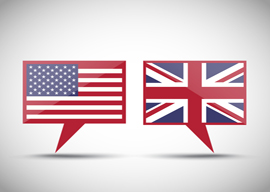
November 18, 2016

Source: Bigstock
There was some mild anxiety when it was revealed that Mr. Trump, as president-elect, called eight or nine heads of government before speaking to the British prime minister, Theresa May. But then, apparently, he assured her of his regard for Britain, and when it was learned that he intended to restore the bust of Winston Churchill to the Oval Office, there were heartfelt sighs of relief: The blessed “Special Relationship” was safe.
This relationship matters to London, or at least to Downing Street. It boosts the prime minister’s ego to appear to be on best-of-chums terms with the “Leader of the Free World,” whoever he may be. (The only PM who didn”t give a damn for the Special Relationship was poor old Ted Heath.) British prime ministers like to think they can offer a guiding hand and much worldly wisdom. Harold Macmillan, recognizing that the United States was now top dog, flapped his hand and said that we would be like the Greeks in the Roman Empire”superior civilization, you know, old boy. This was a strange idea because, while Greek philosophers influenced intellectual Romans like Cicero, any Greeks in the Roman imperial household were either slaves or freedmen.
Sometimes, of course, there has indeed been a personal relationship between prime ministers and presidents: Churchill and FDR, up to a point, though Winston never grasped Roosevelt’s determination to see the liquidation of the British Empire. Then Macmillan adopted an avuncular attitude toward JFK (though he was somewhat embarrassed when the president told him he got terrible headaches if he went two days without having a woman). Ronald Reagan and Margaret Thatcher certainly admired each other and bonded, while George W. Bush and Tony Blair became buddies over the Iraq War, even though this damaged Blair’s reputation irreparably.
There are other reasons why the relationship between president and prime minister may be easy. There is history (though France, not Britain, is the U.S.A.’s oldest ally), and, more important, there is language. It’s a relief for both to be able to communicate without the presence of an interpreter, or dealing with a head of government whose English isn”t as good as he or she thinks it is.
It’s true also that since the Hitler war American and British interests have mostly been the same. Not always, of course. Seventy years ago this autumn, Britain, in alliance with France and Israel, tried to act as an independent Great Power and topple the Egyptian dictator Colonel Nasser. The adventure was brought to an abrupt and humiliating halt when President Eisenhower made his disapproval clear; there was a run on sterling; Harold Macmillan, as Chancellor of the Exchequer, panicked; and, to the considerable irritation of the more gung ho French, we rolled over, obedient to our Washington master’s voice.
That episode made the nature of the Special Relationship clear; the United Kingdom was America’s valued ally only as long as it was an obedient one. The lesson was learned in London. So, for instance, when we were seeking a missile system for nuclear submarines, we bought American rather than developing our own or collaborating with the French nuclear program. Our dependency couldn”t have been made more clear.